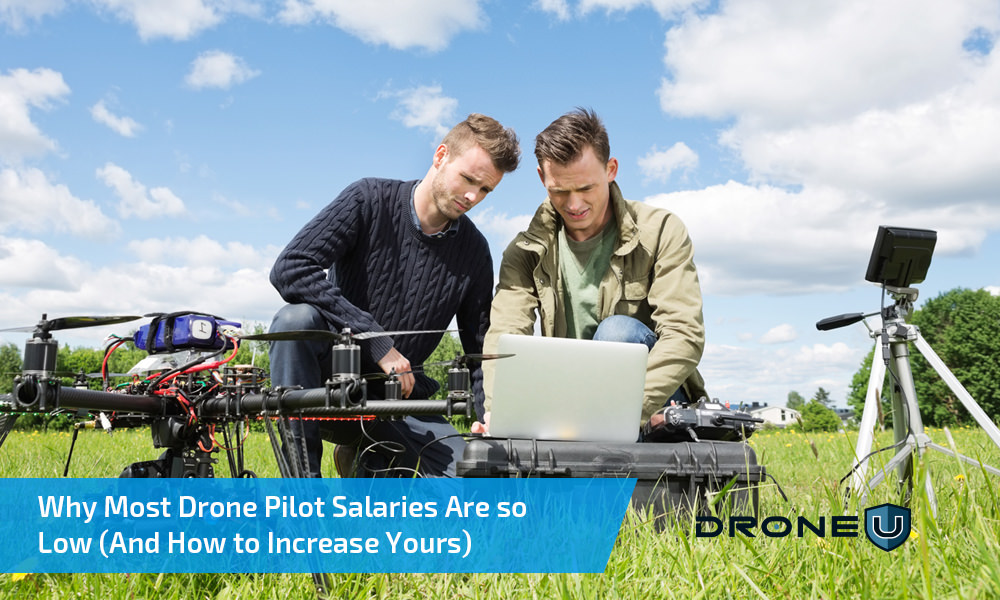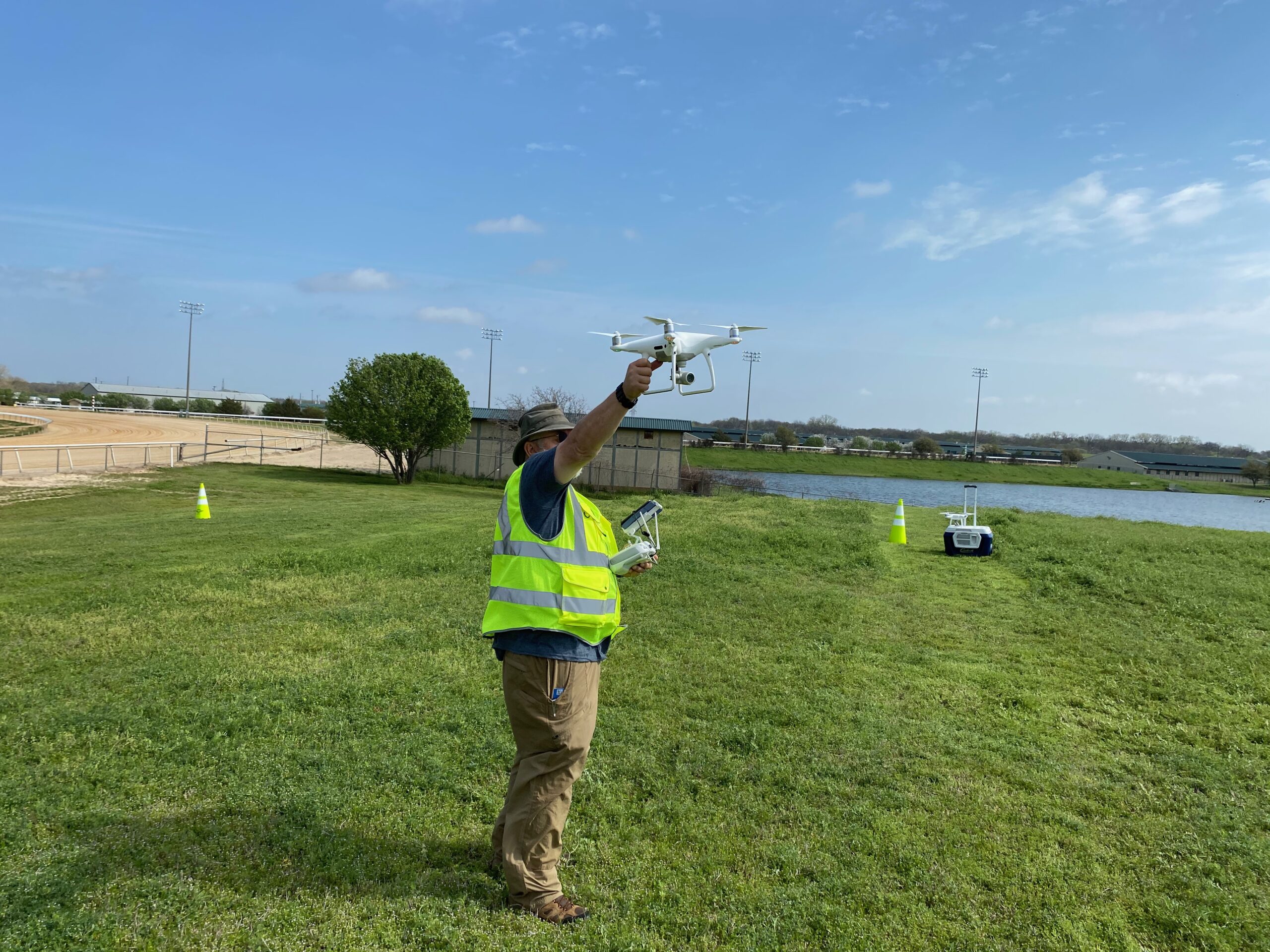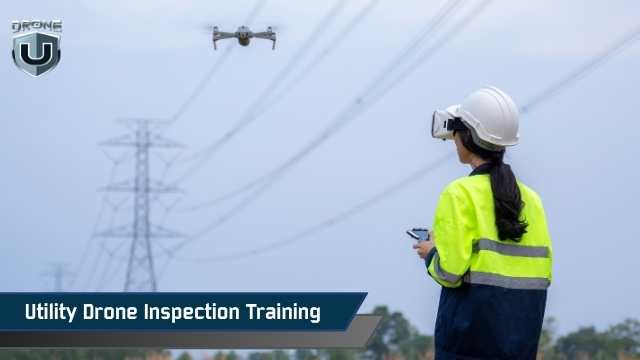CAN’T MAKE MONEY FLYING YOUR DRONE? YOU MAY BE LACKING THE SKILLS NECESSARY TO TURN YOUR PASSION INTO PROFIT.
While some experienced drone pilots make a six-figure salary every year, the average drone job pays only about $30k. Because so many pilots looking to find a drone job have backgrounds in the military, aeronautics, business and other lucrative fields, many people find that the average starting pay for a UAV pilot is not enough to make ends meet. While this might be a great salary for someone straight out of college, looking to build their portfolio and have some fun in the mean time, it may not be enough for someone else.
Fortunately, there are solutions to this problem. They will take time, effort and practice, but an understanding of why professional drone pilots don’t have high salaries and how you can increase your value will help you make more money in the long run.
WHY DO MANY ENTRY-LEVEL DRONE JOBS PAY SO LITTLE?
The reality of the situation, here, is that there are a lot of people who know how to fly drones. They’ve got themselves a consumer-grade UAV, the correct certification and a decent portfolio on hand. They may have even shot some aerial photography for a local real estate business. This person, potentially, could find themselves a job shooting drone footage for a small business.
If, of course, that person finds the yearly $30k to be too low of a salary for them to live off of, the company can easily find another person who excited to make their living flying drones. There are massive companies that employ teams of low-paid drone pilots, knowing that it’s easy to replace these individuals if necessary.
This is basic supply-and-demand economics. Unfortunately, while drone pilots are of value to many companies, there are enough people doing it that these businesses have a good chance of finding someone to do it cheaper.
INCREASING YOUR VALUE WILL INCREASE YOUR SALARY
Corporate America is slowly realizing, at the moment, that it is not a valuable investment for them to give drone jobs to pilots who lack important drone-related skills. In assembling teams of pilots who are very good at flying but not good at handling other tasks involved in the work. As a result, they may end up outsourcing expensive services related to drone repair and other necessary maintenance issues. If you go into a company with the ability to handle tasks that they normally have to outsource, you’ll immediately increase the value you have to them. Equipping yourself with the following drone skills, you’ll optimize your chances of a higher drone pilot salary:
-Drone maintenance/repair
-Troubleshooting
-Systems repair/replacement
-Relevant Software Skills
-Operating in difficult conditions
In any business, of course, you can increase your value by bringing more to the table. If you have additional skills to offer, you are more likely to increase your rate of pay. In order to make more money flying drones professionally, then, this means that you need to have more skills than just flying.
Subscribe to AskDroneU, our regular podcast where we answer your questions about all things drone-related. Available on iTunes, YouTube and at TheDroneU.com.






Add Your Comment